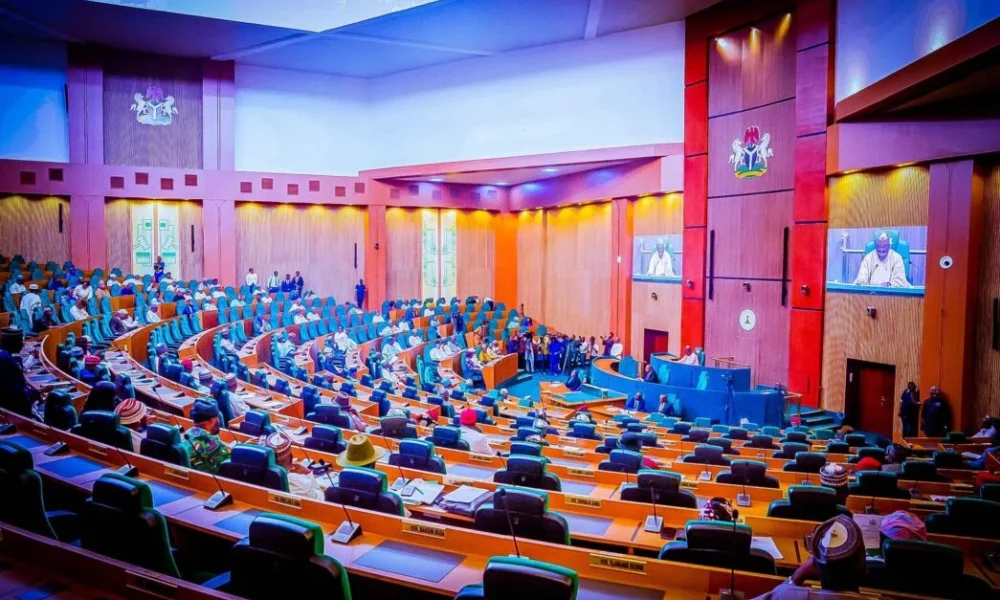(d) Local governments are under the state governments
It is not a moot question that Nigeria, in practice, and essentially, became a unitary state from 1966 when the military came to power via the barrels of gun. Even while retreating into the barracks, the 1979 and 1999 Constitutions they midwifed still had a tinge of militarism, nay unitarism. However, when they are read as organic documents or their helicopter views are taken, the totality of local government administration is the (exclusive) preserve of the state government. Even the milestone 1976 Local Government Reforms supervised by the Federal Military Government, which introduced a uniform one-tier structure of local government system across the country, declared emphatically that a local government is a body “created by and derived its powers from State Government…”
Section 2 (1)(2) of both 1979 and 1999 Constitutions declares that: “2. (1) Nigeria is one indivisible and indissoluble sovereign state to be known by the name of the Federal Republic of Nigeria. (2) Nigeria shall be a Federation consisting of States and a Federal Capital Territory.” (Not a federation consisting of States and Local Governments!!!)
EXPOSED!! POPULAR ABUJA DOCTOR REVEALED HIDDEN SECRET ON HOW MEN CAN NATURALLY AND PERMANENTLY CURE POOR ERECTION,QUICK EJACULATION, SMALL AND SHAMEFUL MANHOOD WITHOUT SIDE EFFECTS. EVEN IF YOU ARE HYPERTENSIVE OR DIABETIC ..STOP THE USE OF HARD DRUG FOR SEX!! IT KILLS!
In Attorney-General of Abia State & 35 Others v. Attorney-General of the Federation [2002] 6 NWLR (Pt. 763) 264, Justice Michael Ogundare of the Supreme Court submitted as follows:
“In my respectful view, by the combined effect of sections 7(1) and 197 and items 22 of the Second Schedule Part 1, the Constitution intends that everything relating to local governments be in the province of the State Government rather than in that of the Government of the Federation. The minor exception to this scheme is to be found in item 11 of the Concurrent List where power is given to the National Assembly with respect to the registration of voters and the procedure regulating elections to a Local Government Council. There is also power given to the National Assembly, pursuant to section 7(6) to make provisions for statutory allocation of public revenue to Local Government Councils in the Federation. Other than these, I can find no provision in the Constitution empowering the National Assembly to make Laws affecting Local Governments.”
Again, in Attorney-General of Abia State & Ors v Attorney-General of the Federation (2006) 16 NWLR (Pt 1005) 265, Justice Adesola Oguntade of the Supreme Court submitted as follows:
“It is noteworthy that section 162(5) permits the National Assembly to make the allocation ‘on such terms and in such manner’ as it may prescribe. Section 162(8) of the Constitution however permits each State in the Federation to distribute the amount standing to the credit of Local Government Councils of a State ‘on such terms and in such manner’ as may be prescribed by the House of Assembly of the State.
“Does the National Assembly have the power to enact a Law to monitor what happens to the amount allocated to the Local Government Councils in the States of the Federation after it has made the allocation of funds to them? In answering this question, it is helpful to consider the meaning of ‘allocation’ as contrasted with the meaning of ‘distribution’. It cannot escape attention that the power vested in the National Assembly is the power to ‘allocate’ whilst the ‘distribution’ of the funds to Local Government Councils is reserved for each State.
“It is as far as I can see apparent that the Act (Monitoring of Allocation to Local Governments Act, 2005) is directed solely against State Governments and their public officials. It is my view that the intendment of the provisions in the 1999 Constitution is to grant power and autonomy to a State Government in its relationship with Local Government Councils in a State and to subordinate Local Government Councils to a State Government.
“It would appear that the National Assembly by enacting the Act into law in relation to States had unwittingly engaged in a cause that is a hindrance to the autonomy granted a State Government in its power to control the Local Government Council.
“It is also an attempt, albeit unintended, to set the Local Government Councils in a State against their State Governments. This arises from the fact that, the Act in its language, and the functions it assigned to the Committee created thereunder, convey that it was to prevent the State Government and its officials converting to their own use funds meant for a Local Government Council. I think that under our Constitution, the Federal and State Governments are sovereign when acting within the limits of the power granted them by the Constitution.
“The notion that allocation of funds from the Federation Account in a Constitution fashioned on Federalism can be construed to confer a right on the National Assembly to ascertain whether or not a State Government has transmitted the funds sent through it to a Local Government reached the Local Government is untenable.” (Emphasis supplied)
I should mention in parenthesis that the Monitoring of Allocation to Local Governments Act, 2005, referred to by the plaintiff (AGF) in the 2024 LG autonomy suit, still exists but only on paper. I’m a bit surprised he referred to it. This is because in Attorney-General of Abia State & Others v Attorney-General of the Federation (2006) (supra), the Supreme Court examined its provisions with a fine-tooth comb and applied the blue pencil rule. In the end, what is left of Monitoring of Allocation to Local Governments Act, 2005 is no more than the ordinary shell of a snail, its flesh having been removed, as the apex court declared most of its key provisions as unconstitutional.
(e) The power of money/ allocation
Public revenue is the live wire of any government. Everything rises or falls with revenue or public supply. For all practical purposes, any attempt to pay local councils statutory monthly allocation directly by the Federal Government from the Federation Account amounts to placing local governments on an equal footing with the state governments. The 11 July, 2024 judgemen introduced a silent mischief that is easily glossed over. Apart from ordering direct payment of monthly allocations to local governments, the Supreme Court said on page 42 of the Certified True Copy of the judgement as follows:
Advertisement
“This is an application that would not exclude any other mode of paying allocation from the Federation Account to the Local Government Councils and giving the discretion to the Federation to pay the allocations directly to the Local Government Councils or through States.”
In other words, any partisan Federal Government can choose to pay local council allocations through those states with friendly governors and encourage subversion or lack of cooperation of local councils with the state governments considered unfriendly to the Federal Government – a recipe for heating up the polity. In the worst case scenario, the Attorney General of the Federation can procure a court order stopping the Federal Government from paying local councils whose LG elections are disputed before the courts (where the party in power is an interested party). Experience has shown that anything is possible in this clime…!
(f) Red flag – give land to herdsmen or we seize your local council allocation!
If the 11 July, 2024 verdict of the apex court, which, for all practical purposes, will end up turning the country into a unitary state, had been handed down during the last administration, by now, the hamlets, villages and towns in the South of Nigeria would have been subjugated by herdsmen. The then Federal Government would have (through contrived electoral cum legal crisis) used the power of Federal Allocation to arm-twist local governments to ensure herdsmen not only have land settlements in every hamlet, village and town in the South of Nigeria but dominate them – give the herders land or we seize your council allocation! It is not easy to forget the mind-boggling scale of terror, savagery and barbarity unleashed WITH IMPUNITY by gun-toting herders across the Southern part of Nigeria during the last administration. At a time, people were afraid to go to their places of worship because of the fear of herdsmen’s attacks…
Nigeria was at various times ruled by adherents of different faiths from all sections of the country. There was no time any Head of State was accused of being a religious bigot except the last one. There may be no fear at present because the current President is not a religious bigot, but there is no guarantee this polity cannot throw up another religious bigot as President in the future! Imagine such a religious bigot, armed with the judgement of the Supreme Court, having the power to seize or release monthly allocation to local councils! A red flag indeed!
(g) Local governments not part of federating units
We cannot blow hot and cold at the same time. We cannot simultaneously approbate and reprobate. We cannot be advocating devolution of powers and at the same time be applauding a judicial verdict that concentrates more powers at the centre! This country is so diverse culturally, ethnically and religiously; I do not want a Federal Government that will control the air I breathe in my village.
Even if the Federal Government acts with best intentions at all times, local governments are not part of the federating units. They are in the bowels of the state governments and should receive their statutory allocations through the States, in line with the direct, express and unambiguous provisions of Sections 162(5) and 162 (8) of the Constitution of the Federal Republic of Nigeria 1999 (as amended). We should not indulge in cutting our nose to spite our face! In common parlance, the medicine for headache is not to cut off the head!
In this context, the following submissions from the dissenting judgement of Justice Habeeb Abiru of the Supreme Court, in the 11 July, 2024 verdict, are unimpeachable:
“Section 162(5) and (6) of the 1999 Constitution stipulates the mode of payment of the funds due to the Local Government Areas of States from the Federation Account.
“These provisions are explicit and self-explanatory. They do not admit, accommodate or concede the direct payment of the funds due to the Local Government Councils from the Federation Account to the Local Government Councils.
“It is my understanding, on reading the provisions of Section 7 of the Constitution along with those of Section 162 of the Constitution together, that the essence of the mode of payment of the funds due to the Local Governments Areas of a State through the State provided for in the Constitution is in recognition of the fact that the Local Government Areas are constituent parts of and are subordinate to the State and to protect the concept of federalism contained in the Constitution.
“The prayer of the Plaintiff that this Court should order direct payments of the funds due to the Local Government Areas from the Federation Account to the Local Government Councils by the Federal Government, and thus bypassing the States, is, in my view, an invitation to this Court to engage in judicial legislation and to interpret the provisions of the Constitution in a manner that will undermine the very foundation of the nature of the federalism upon which the provisions of the Constitution were constructed.” (Emphasis supplied)
…To be continued next Thursday
(Read the online version of the column at www.independent.ng)











